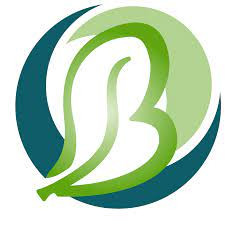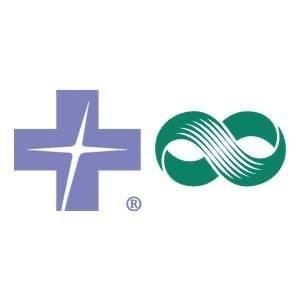JOB DESCRIPTION SUMMARY
The Nurse Practitioner is a licensed professional nurse with advanced graduate education and clinical training who provides comprehensive palliative care services in compliance with the state Nurse Practice Act and under the supervision of a collaborating physician. The Nurse Practitioner provides palliative care through the evaluation, assessment and management of the HPI, review of symptoms, physical exam, management of health problems by directing and developing the plan of care, prescribing medications as needed, coordinating and collaborating with patients, families and other healthcare practitioners. Under the supervision of a physician, the nurse practitioner visits patients, completes physical assessments, and provides a consultation to meet the patient's goals and improve quality of life. The nurse practitioner builds from the resources of the community to plan and direct services to meet the need of individuals and families within their homes and communities.
ESSENTIAL JOB FUNCTIONS/RESPONSIBILITIES
Patient Care
1. Provides palliative care consultations in compliance with the state Nurse Practice Act under the supervision of a collaborating physician.
2. Completes history and physical examinations by evaluating the patient's medical condition and health history, ordering and interpreting results from laboratory and diagnostic tests or procedures, diagnosing health conditions and documents the findings in the patient's medical record.
3. Manages advanced illnesses by developing an individualized plan of care, prescribing medications and/or treatments, obtaining consultations or making referrals and coordinating hospice care, when appropriate.
4. Educates patient/family on disease progression, trajectory, and options for care.
5. Reviews clinical information, coordinates and oversees patient care in consultation with the palliative care interdisciplinary team and other healthcare practitioners.
6. Assures that patient receives appropriate measures to control symptoms, through collaboration with interdisciplinary team members and other healthcare providers.
7. Reviews and develops advanced directives with patient/family.
8. Consults the collaborating physician when the patient's plan of care is outside standardized practice and protocols.
Communication
1. Communicates and collaborates with the interdisciplinary group to create, review and revise the patient's plan of care.
2. Consults with the patient's primary care physician, specialists, home health care team, caregivers, and other healthcare providers within the patient's care team.
3. Communicates with other community health practitioners to coordinate the plan of care.
4. Attends and participates in palliative care interdisciplinary group meetings.
5. Completes, maintains and submits accurate and relevant clinical notes, physical examination notes, assessment visit notes, medical orders, collaboration notes and other documentation in the medical record.
6. Educate/counsel patients, families, and/or caregivers as to preventative care, medical problems, psychological problems, and spiritual problems in conjunction with the interdisciplinary team to meet the total needs of patients.
7. Provides and maintains a safe environment for the patient.
8. Assists the patient and family/caregiver and other team members in providing continuity of care.
9. Works in cooperation with the family/caregiver and palliative care interdisciplinary group to identify the goals of care and meet the care needs of the patient and family/caregiver.
10. Serves as a nursing resource for consultation and educations to members of the interdisciplinary team and other healthcare practitioners in the community.
11. Establishes, builds and nurtures relationships with staff and community referral sources to facilitate program growth.
Additional Duties
1. Maintains knowledge of and compliance with current Medicare/Medicaid, state/federal rules and regulations for evaluation and management billable services
2. Complies with all Health Insurance Portability and Accountability Act (HIPAA) requirements in accordance with federal, state and organizational policies.
3. Participates in organizational monitoring of the quality of medical services and quality improvement initiatives.
4. Assumes responsibility for personal growth. Develops, maintains and upgrades professional knowledge and practice skills through attendance at seminars, conferences and participation in continuing education and in-service classes.
5. Fulfills the obligation of requested and/or accepted assignments.
6. Demonstrate knowledge in communication and counseling patient/family in dealing with advanced illnesses.
The above statements are only meant to be a representative summary of the major duties and responsibilities performed by incumbents of this job. The incumbents may be requested to perform job related tasks other than those stated in this description.
POSITION QUALIFICATIONS
1. Graduation from an accredited School of Nursing and accredited Nurse Practitioner Program.
2. Current nursing licensure in State and CPR certification.
3. Master's degree with a minimum of one (1) year Nurse Practitioner experience and a minimum of one (1) year hospice or palliative care experience.
4. Accreditation from an approved certifying body for advanced practice nursing as required by State.
5. Certification in a specialist area preferred; (e.g. Hospice and Palliative Nursing (CHPN) or Geriatrics).
6. Ability to work independently and effective time management skills.
7. Excellent observation, verbal and written communication skill, problem solving skills, mathematical skills; nursing skills per competency checklist.
8. Prolonged or considerable walking or standing. Able to lift, position and/or transfer patients. Able to lift supplies and equipment. Considerable reaching, stooping, bending, kneeling and/or crouching. Visual acuity and hearing to perform required nursing skills.
9. Must be a licensed driver with an automobile that is insured in accordance with state/or organization requirements and is in good working order.
10. Ability to receive or has a current DEA license.









